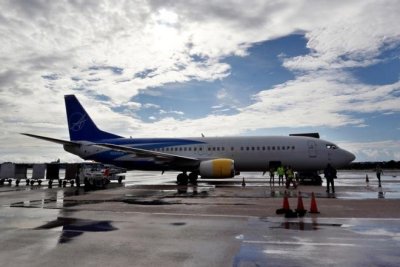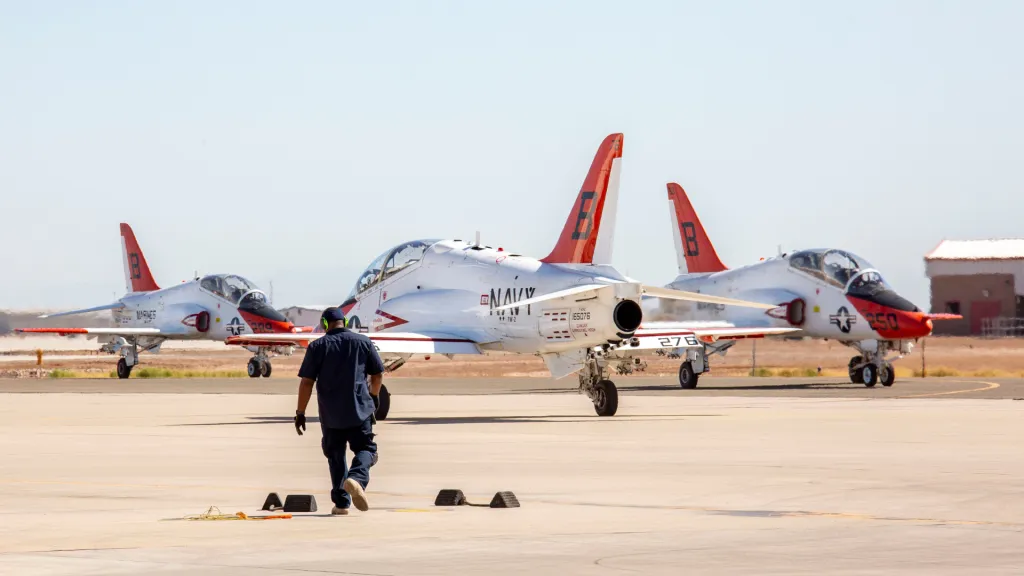Cuban airports face jet fuel, landing systems crises

An operational notice from the international NOTAM system Sunday confirmed that Havana’s José Martí international airport will not have Jet A-1 fuel, the standard for commercial aviation, for one month between Tuesday and March 11. File Photo by Ernesto Mastrascusa/EPA
Feb. 9 (UPI) — The fuel shortage in Cuba began to simultaneously impact air transportation and tourism after an international aviation alert reported that Havana’s José Martí airport will not have fuel for one month.
The government also began to close hotels and relocate tourists as part of an emergency plan in the face of one of the worst energy crises in the island’s history, worsened by the end of oil shipments from Venezuela and pressure from the government of Donald Trump on crude oil supplies.
An operational notice from the international NOTAM system Sunday confirmed that Havana’s José Martí international airport will not have Jet A-1 fuel, the standard for commercial aviation, for one month between Tuesday and March 11, digital outlet CiberCuba reported.
The notification not only warns of the fuel shortage, but also of temporary limitations in landing aid systems, in addition to the inoperability of the runway visual range system, which is used to measure visibility when weather conditions are unfavorable.
The restriction is not limited to the capital. Similar notifications indicate fuel shortages at the country’s nine other airports.
Aviation authorities warned airlines that reserves could run out within a short period if supplies are not restored.
The measure compromises commercial, charter, cargo and executive aviation flights, and forces companies to arrive with extra fuel, make refueling stopovers in other countries or reschedule operations, reported Cuba Noticias 360.
This situation contrasts with recent statements by Transport Minister Eduardo Rodríguez Dávila, who had said operations at ports and airports remain guaranteed.
So far, international airlines have not communicated how they will deal with the contingency.
The impact is projected directly on tourism, the island’s main source of foreign currency.
Cancellations, delays and reduced air connectivity threaten the arrival of visitors from key markets such as Canada, Russia and Europe, in a context in which traveler confidence already shows signs of deterioration.
According to official figures, the arrival of international tourists to Cuba fell to 1.8 million in 2025, 17.8% less than in 2024. The result fell well short of the government target of 2.6 million visitors and marked one of the lowest records in more than two decades.
The energy crisis has as its backdrop the interruption of oil supplies from Venezuela, the island’s main supplier, following the capture of Nicolas Maduro.
This was compounded by the recent decision of the United States to declare a national emergency regarding Cuba and warn that it could impose tariffs on countries that supply oil to the Caribbean nation, in an escalation of pressure that has further complicated Havana’s access to fuel.
In parallel with the airport problem, the government has begun to close hotels in key tourist destinations and relocating foreign guests. The measure is part of an emergency plan to reduce energy consumption and reorganize facilities.
At least eight hotels closed in Cuba’s main tourist destinations and their clients are being relocated to other resorts amid the worsening national crisis and the shortage of fuel and supplies, Diario de Cuba confirmed from the island.
The hotel closures are occurring in the middle of the high season but amid travel advisories over the deterioration of internal conditions. The reduction of flights, energy uncertainty and hotel reorganization add pressure to an industry that is strategic for the Cuban economy.
Vice Prime Minister and Minister of Foreign Trade and Foreign Investment Oscar Pérez-Oliva Fraga said on state television that the executive branch “has designed a plan in tourism to reduce energy consumption, compact tourist facilities and take advantage of the high season,” digital outlet Cuba LLama reported.
Sources from the sector indicated that destinations such as Varadero and the northern cays concentrate much of these measures, where international chains operate.
Authorities are maintaining an emergency plan that includes broader energy restrictions, a reduction of state activities and measures to manage available fuel.
Cuban President Miguel Díaz-Canel said Thursday he was willing to initiate a negotiation process “without pressure” with the United States to help economic difficulties facing the island.
He acknowledged that the lack of Venezuelan oil has placed the country in a “complex” energy situation, affecting not only electricity generation, but also the population’s basic economic activities.
While the United States has sent more than $5.95 million in humanitarian aid managed by the Catholic Church, a measure criticized by Havana because of its “grossly opportunistic political purposes,” it has insisted on the blockade regarding hydrocarbons.
Meanwhile, countries have sent assistance. China was behind a financial package of about $81 million and a food shipment of 60,000 tons of rice in January. Mexico, sent two Navy vessels Sunday loaded with 800 tons of humanitarian aid.










